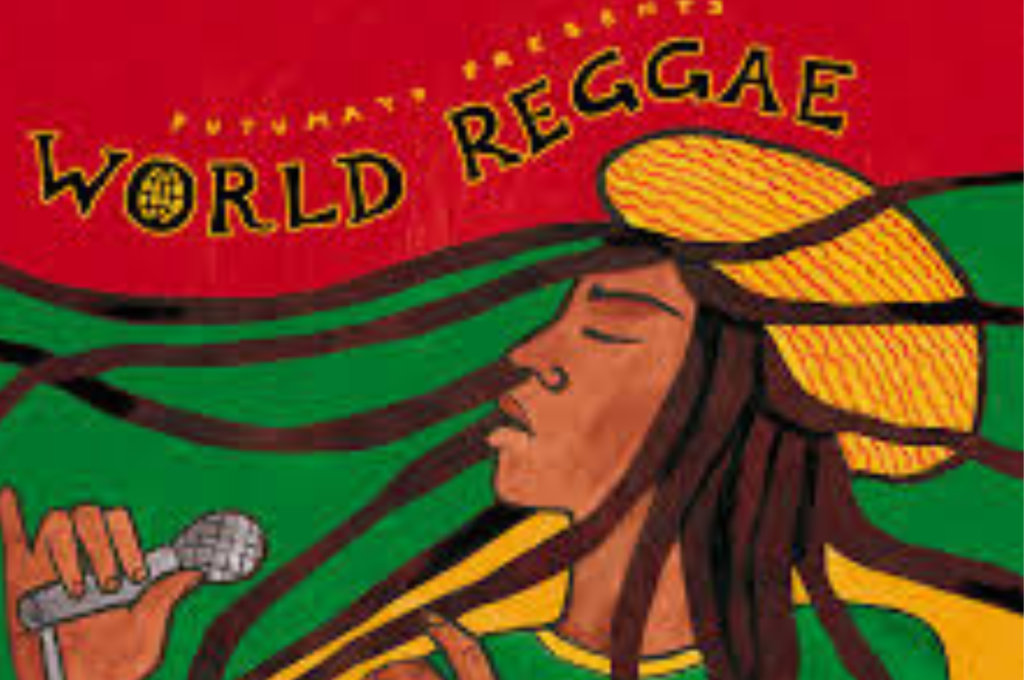
"Groovin' to the Rhythm: Exploring the Soulful Vibes of Reggae Music"

- Dub: A subgenre of reggae, dub involves remixing and manipulating existing reggae tracks, emphasizing the instrumental elements and incorporating effects such as reverb and delay. Dub has had a significant impact on the development of electronic music genres
- Influence on Other Genres: Reggae has influenced a wide range of musical genres, including ska, rocksteady, dancehall, and hip-hop. Artists from various parts of the world have incorporated reggae elements into their music.
Introduction of Raggae
Reggae is a music genre that originated in Jamaica in the late 1960s. It has since gained international popularity and recognition for its distinctive sound, which is characterized by a slow tempo, emphasis on the offbeat, and prominent use of syncopated rhythms.
Offbeat Rhythm: Reggae is known for its distinctive “skank” rhythm, where the guitar or keyboard emphasizes the offbeat, creating a laid-back and infectious groove.
Bass Emphasis: The bass guitar plays a crucial role in reggae, providing a deep, resonant foundation for the music. The basslines in reggae are often melodic and play a key role in shaping the overall sound.
Rasta Influence: Many reggae artists identify with the Rastafari movement, a spiritual and cultural movement that originated in Jamaica. Rastafari themes, including a focus on Jah (God), liberation, and social justice, are often present in reggae lyrics.
Reggae continues to evolve, with contemporary artists blending traditional reggae elements with other genres, creating new and innovative sounds while preserving the genre’s roots and messages.
Importance of Raggae
Reggae holds cultural, social, and musical significance that extends beyond its Jamaican roots. Here are several aspects that highlight the importance of reggae:
Cultural Expression: Reggae serves as a powerful form of cultural expression, reflecting the history, struggles, and aspirations of the Jamaican people. It has become a symbol of Jamaican identity and pride, and it often carries messages of resistance, resilience, and hope.
Social Commentary: Reggae is renowned for its socially conscious lyrics. Many reggae songs address issues such as poverty, inequality, discrimination, and political corruption. Through its lyrics, reggae has been a vehicle for social commentary and a means of raising awareness about pressing societal issues.
Spiritual and Rastafarian Influence: The Rastafari movement, which emerged in Jamaica, has had a profound impact on reggae. The spiritual and cultural themes associated with Rastafari, including the reverence for Jah (God), love, and the pursuit of justice, are frequently explored in reggae music.
Global Influence: Reggae has transcended its Jamaican origins to become a globally recognized and appreciated genre. Its infectious rhythms, positive messages, and unique sound have influenced artists across various genres and cultures. Reggae has played a role in shaping the global music landscape.

- Advocacy for Peace and Unity: Many reggae songs promote messages of peace, love, and unity. The genre has been associated with movements advocating for peace and social harmony. Artists like Bob Marley, with his iconic song “One Love,” have become synonymous with messages of global unity.
- Impact on Subgenres: Reggae has given rise to numerous subgenres, including ska, rocksteady, dancehall, and dub. These subgenres have further diversified the musical landscape, contributing to the development of other genres and influencing artists across the worl
